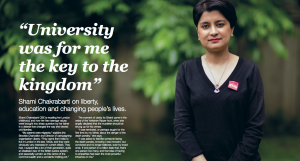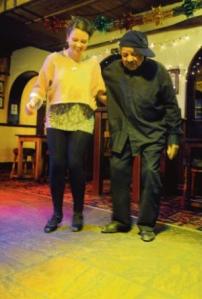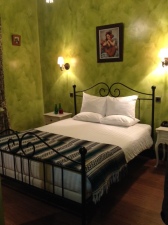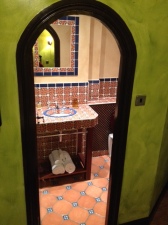Have you ever found yourself looking at a weekend to-do list and feeling completely overwhelmed by life in general?
That was how I felt last weekend.
Confronted by a list of life admin, household chores, budgeting tasks and wedding to-dos, I felt a clammy weight settle in my stomach, and a heavy fog of despair descend. Life is busy at the moment. And not entirely easy. It feels like a bit of a constant juggle where nothing ever gets done properly, just as well as can be in the time we have. Time gets stretched here, a food shop lasts an extra few meals there, a quick wipe around the sink serves as a sticking plaster for our hideous bathroom, and I feel like I’m constantly late for everything.
The sensible thing of course, is to make yourself a list, and methodically work your way through it, striking off tasks and replacing the dread with a warm glow of satisfaction at how you’ve managed to transform your tangled, sweaty cobweb of a life into an organised, peaceful sanctuary so slick you’re considering instagram-ing your (empty) dish rack.
I’ve got another solution. OK, it’s not so much a solution in that we still need to do a food shop. But it did help me get a bit of a perspective, a much needed rest and a break from the pressures that from time to time can mount up on us and make us feel like we’re crumbling under the weight of us.
The 24 hour holiday. As far away as you can reasonably get in a few hours. I promise, it’s worth it. And it’s amazing what you can cram in.
At 3.30pm last Saturday I was calling round places in south Devon, trying to find somewhere with a dog-friendly, last minute room available. At 4pm I’d found a yurt in a field near Totnes, with availability, but no dog friendliness. At 4.15pm I’d burst into grateful tears when my parents said they’d look after the dogs, at 4.30pm we’d dropped our two hairy hounds off for their night away, and by 5pm we were on the road, overnights packed, and on our way to Devon. At 3.30pm on Sunday, feet coated with sand, faces tinged with sun, tired, happy, more relaxed than I can remember, we got in the car to head home.
In a mere 24 hours we’d:
- Got ourselves down to a Mongolian yurt in an idyllic buttercup-filled meadow in south Devon, overlooked by a Shetland pony and visited by a springer spaniel/collie named Grace.
- Munched on delicious, hearty vegetarian food at Totnes stalwart Willow, washed down by organic English ale
- Lit a fire in the brazier by our yurt, opened a bottle of red, and sat chatting and stargazing, enjoying the peace of the Devon countryside – and actually spending time together that wasn’t working out finances or delegating chores.
- Woken up to the sound of birdsong, sunshine streaming into our cosy little circular yurt-bedroom. Opening the door to let some air in meant being greeted by a sea of sunlit buttercups, and a confused swallow who flitted in and then out again.
- Explored the quirky little town of Totnes, eaten freshly baked slices of pizza, sipped delicious coffee, people watched, visited the beautiful Bowie gallery and discovered the Own Art scheme (which everyone with an interest in art, but non-sympathetic bank balance should know about)
- Rambled round a charity shop and bought books to take to the beach (and some £1 records)
- Trotted down to Bantham Beach (on the recommendation of the super friendly lady in the Bowie gallery) – a wide stretch of holiday-worthy sand with its very own Gastrobus selling delicious-smelling burgers, cakes, snacks and drinks
- Paddled in the warm water, collected shells, walked down the beach and flopped down with our charity shop books for a peaceful beach read
Not bad for 24 hours. And nothing like getting as far away as possible from the grinding pressure of everyday life to give you a bit of perspective on it all.
Oh, and it cost us a grand total of £150 all in. Accommodation, food, parking, the lot. Top tip – set your budget and get it out in cash to stop yourself accidentally going over…












